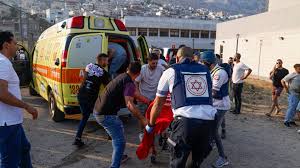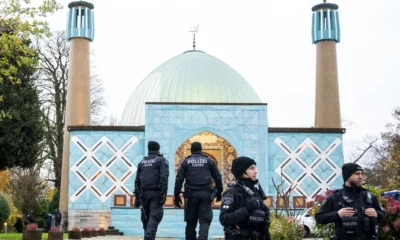
Foreign
Top Hezbollah Commander Killed in Israeli Strike in Beirut

Top Hezbollah commander killed in Israeli strike in Beirut, Escalating Tensions
iexclusivenews – A top Hezbollah commander has been killed in an Israeli strike in Beirut, escalating tensions in the region. The attack, which targeted Hezbollah’s stronghold in Lebanon’s capital, resulted in the deaths of at least 14 people and left dozens wounded.
Among the casualties was Ibrahim Aqil, the commander of Hezbollah’s elite Radwan Force, who the United States wanted for his involvement in the 1983 bombing of the US embassy in Beirut.

Hezbollah Commander Ibrahim Aqil’s Death
The Israeli military confirmed that it conducted a “targeted strike” against Ibrahim Aqil, killing him and around 10 other senior Radwan commanders.
Hezbollah confirmed Aqil’s death, hailing him as “one of its great leaders.” The strike left a massive crater and gutted the lower floors of a high-rise building in Beirut’s southern suburbs, where rescue workers continued to search the rubble for survivors.
Aqil’s death marks the second killing of a top Hezbollah commander since the start of the war in Gaza. In July, an Israeli strike on Beirut killed Fuad Shukr, a top operations chief for the movement.

The recent attack follows two waves of explosions of communication devices used by Hezbollah members, which the group blamed on Israel.
Escalating Conflict and International Reactions
The death of the top Hezbollah commander has intensified the conflict between Israeli troops and Hezbollah fighters along the Israel-Lebanon border.
The focus of Israel’s military operations has shifted from Gaza to its northern border, with Defence Minister Yoav Gallant stating that the country’s enemies would find no refuge, “not even the Dahieh in Beirut,” referring to the city’s southern suburbs.
The United Nations has expressed deep concern over the heightened escalation. Stephane Dujarric, spokesman for UN Secretary-General Antonio Guterres, called for “maximum restraint” from all sides.
The UN’s High Commissioner for Human Rights, Volker Turk, condemned the attack on Hezbollah communications devices, stating that it violated international law and could constitute a war crime.
Hezbollah’s Response and Future Implications
In response to the strike, Hezbollah targeted at least six Israeli military bases with salvos of rockets. The group’s chief, Hassan Nasrallah, vowed retribution for the attacks, which have killed dozens and left Hezbollah reeling.
The latest blow to Hezbollah came after thousands of its operatives’ pagers and walkie-talkies exploded over two days, killing 37 people and wounding thousands more.
Residents of Marjayoun, a Lebanese town close to the border, described the overnight bombardment as among the heaviest since the border clashes began last October.
“We were very scared, especially for my grandchildren,” said Nuha Abdo, 62. “We were moving them from one room to another.”
Broader Regional Impact
The ongoing conflict has forced tens of thousands of people on both sides of the Israel-Lebanon border to flee their homes.
International mediators, including the United States, are scrambling to prevent the Gaza war from escalating into a broader regional conflict.
Israeli Prime Minister Benjamin Netanyahu delayed his scheduled departure to the United States, where he is due to address the United Nations General Assembly, to manage the crisis.
The war in Gaza, triggered by Hamas’s October 7 attacks, has resulted in significant casualties on both sides.
According to an AFP tally based on Israeli official figures, 1,205 people, mostly civilians, have died on the Israeli side, including hostages killed in captivity.
In Gaza, Israel’s retaliatory military offensive has killed at least 41,272 people, most of them civilians, according to figures provided by the Hamas-run territory’s health ministry.
What You Should Know
The killing of a top Hezbollah commander in an Israeli strike on Beirut has further escalated tensions in the region, with significant implications for the ongoing conflict between Israel and Hezbollah. As international efforts to mediate the situation continue, the potential for a broader regional conflict remains a pressing concern.


























